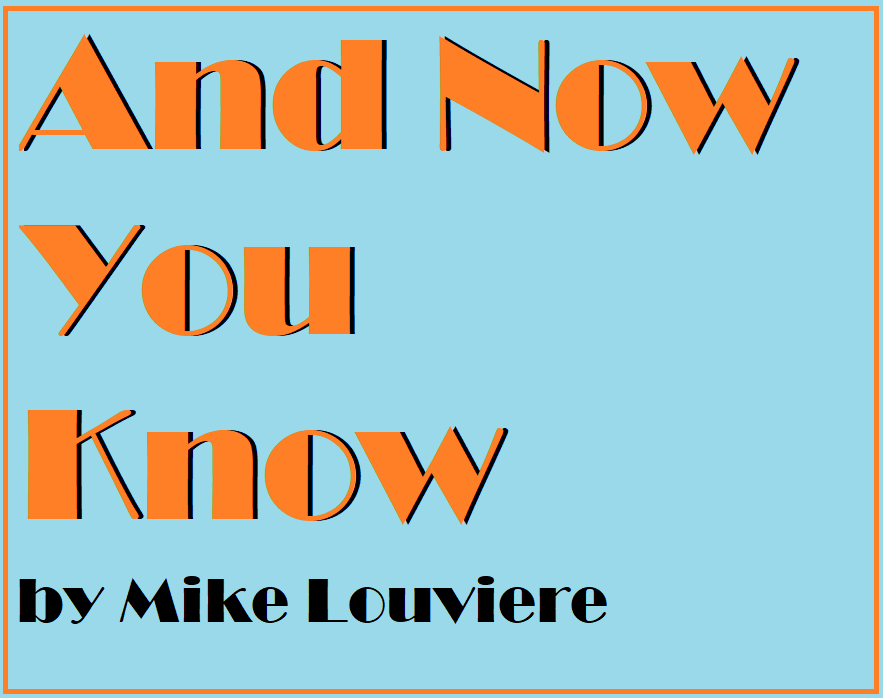And Now You Know: Dupree And His Houseboat
Published 12:57 am Saturday, September 18, 2021

- And Now You Know
|
Getting your Trinity Audio player ready...
|
For nearly two decades those passing over the Adams Bayou bridge on MacArthur Drive saw on the west bank on the south side of MacArthur Drive a houseboat, sort of shabby-looking and covered with tar paper. Occasionally they would see the owner/resident of the houseboat, a rather unkempt man of indeterminate age.
In 1961, Orange Leader reporter Bobbie Broussard conducted an interview with the man. His name was Constant Dupree and at the time of the interview he was 59 years old. He was the son of Dr. Louis Dupree, a pioneer physician in Orange and the Southwest Louisiana area. Constant was born in Orange and raised in a comfortable home. He had been married, but his wife left him in 1932 and took their three sons with her.
Dupree had always liked the outdoor life, so he bought his first houseboat and started trapping around Cameron, Louisiana. He caught mostly muskrat, coon, and mink. Occasionally he would catch a red otter that would be worth about $60. If he was lucky, he would catch a black otter that would sell for about $90.
Trending
He came to Orange in about 1948 and tied his houseboat up on Little Cypress Bayou. Later he moved to the Adams Bayou location and was able to lease the spot for $1 per year.
“I never did like house life, electric lights hurt my eyes and I can’t stand television, I’d rather sit here and watch cars go by or talk to people,” he told Broussard.
He had two small fishing boats, one partially submerged, and both nearly hidden in the tall marsh grass. A wooden walkway led from the highway to the houseboat.
In the late afternoon he sat on his tiny porch and watched the traffic go by on MacArthur Drive. He usually paid little attention to time and did not own an alarm clock.
He fished when he wanted to, trapped when he felt like doing so, and occasionally hunted.
“I’m comfortable here and I’m out of everyone’s way. The only problems are the drunks and hoboes who come by here to mooch,” he said.
Trending
Dupree cooked on a small kerosene burner and had an old fashioned kerosene lamp for lighting. The day of the interview he had a large pot of stew cooking on the little burner.
“I don’t like fish, so I sell what I catch to buy groceries,” he said.
On a shelf were large glass jars of beans, cornmeal, and flour.
He said he kept the beans, flour and such in jars to keep the dust out and only bought enough meat for the day’s needs. He said he was not much bothered by bugs; he used insecticide and had a disinfectant that burned snake’s eyes.
“The big rats are a problem; they chew the clothes and get in the grub. Naturias are not much of a problem, they have been mostly killed off,” he said.
In one corner of the one room houseboat was a small wood heater, he said it kept the place “very warm” in cold weather. In the other corner was a small, about three-quarter size bed.
He used a local laundromat to wash his clothes and said he did not like his khakis ironed.
In bad weather he would sometime go to his sister’s house on Main Street.
The boathouse had weathered wind and electrical storms, the worst damage was when the roof blew off in Hurricane Audrey.
“I was going out the door when the roof blew off and the nearby electrical wires came tumbling down. I did not know which way to run. Finally, I got to my boat and paddled to the bridge and stayed under there till daylight,” he said.
He said after the storm he rented a room in town until his roof was repaired.
Until his health started to decline, he had done odd jobs around town to supplement his income. Eventually he became dependent on the fish he caught and the animals he trapped to survive. He did receive some aid occasionally from the Orange County Welfare Department.
Dupree may have had a few regrets, but he said he had loved living among the wildlife and said he was comfortable living out of the way of everyone and enjoying life as it came to him.
“And now you know.”






